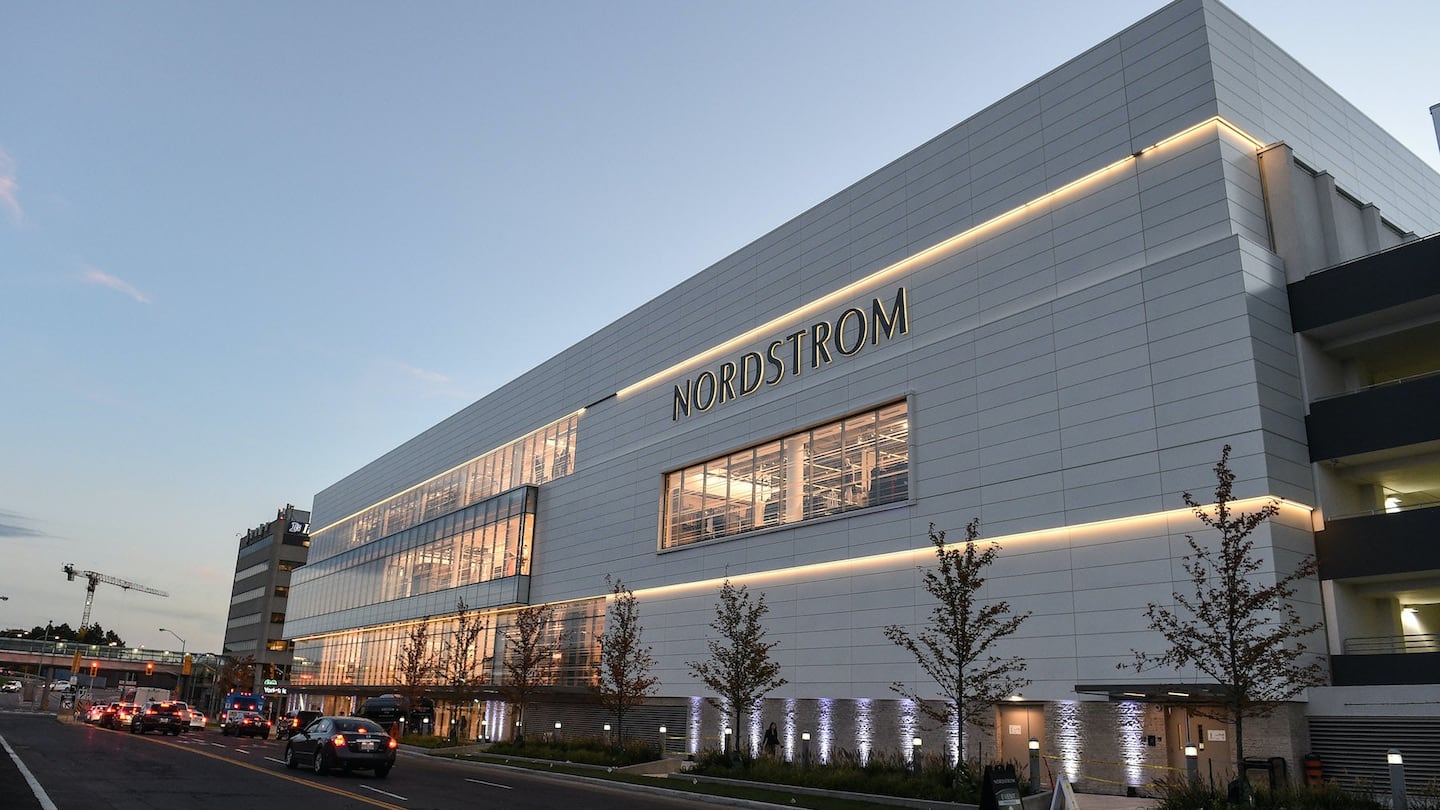
The Business of Fashion
Agenda-setting intelligence, analysis and advice for the global fashion community.

Agenda-setting intelligence, analysis and advice for the global fashion community.

SEATTLE, United States — Nordstrom Inc.'s founding family is likely to get its namesake department store chain on the cheap. Shareholders shouldn't forget it's cheap for a reason.
The Seattle-based company announced on Thursday that members of the Nordstrom family were considering buying out their fellow shareholders and taking the retailer private. The move comes after a 45 percent slide in Nordstrom's stock over the past two years, as its same-store sales and profit margins failed to escape the e-commerce death wand. Before the deal news, Nordstrom was trading for less than 6 times the past year's Ebitda, hovering close to its valuation range during the throes of the financial crisis in 2008 and 2009.
The typical shareholder complaint about a management-led buyout after a big stock decline is that insiders are trying to steal the company from the bargain bin. Indeed, tacking on a 30 percent premium to Nordstrom's unaffected price implies a trailing 12-month Ebitda valuation of about 7 times. Hudson's Bay Co. paid more than 10 times Ebitda for Saks Inc. in 2013, while private equity firms bought out Neiman Marcus Group that same year for about 9 times.
It's hard to argue those are fair comparisons, though. Back in 2013, retailers still didn't fully realise how much damage e-commerce could do to their business; they still thought it was a good idea to open more brick-and-mortar locations. Rather than trying to be opportunistic on price, it's more likely the Nordstrom family simply recognises no one is safe from the industry's struggles right now — and the pain isn't going away any time soon.
ADVERTISEMENT
The things that used to shield Nordstrom — higher-end offerings that wealthier shoppers still prefer to sample in-person, off-price Nordstrom Rack locations catering to bargain-hunters, and heavy investment in online channels — aren't working as well as they once did.
Discount competition has increased, contributing to two straight quarters of declining comparable-store sales at Nordstrom Rack stores. Efforts to bolster full-price offerings — such as the $350 million purchase of subscription service Trunk Club in 2014 – have fizzled. Online sales have been rising, but former CFO Michael Koppel said in March that e-commerce is still cannibalising sales from physical stores.
Finding Nordstrom's place in this shifting landscape will take time and likely some difficult choices about store closures and promotional cutbacks. That process is arguably best handled away from the constant quarterly scrutiny of Wall Street.
At that aforementioned 30 percent premium, Nordstrom would be valued at $10.8 billion including debt. A deal that size would be no small feat to finance, even for a billionaire family. Still, Nordstrom family members own roughly 30 percent of the shares, according to data compiled by Bloomberg. That's virtually the same size as the average equity check used in US private equity buyout deals this year. That implies the family may not have to lean on a partner for additional financing.
But that also suggests the family would be willing to borrow nearly $5.5 billion more from banks, adding to the roughly $2.7 billion in debt already on Nordstrom's balance sheet. Even though it should pass muster with regulators at about 5 times the department store chain's projected fiscal 2018 Ebitda, it's also a level that could quickly turn perilous if the retailer's performance erodes.
The Nordstrom family need only look at what's happening to one of its closest competitors, Neiman Marcus, to understand the consequence of saddling a department-store chain with too much debt. Neiman's $6 billion buyout by Ares Management LP and the Canada Pension Plan Investment Board is turning out to be a lemon.
To preserve their own wealth and shore up the retailer's balance sheet, family members could do worse than teaming up with a cashed-up private equity firm. With most avoiding the sector like the plague, finding an interested party may be tricky, but not impossible.
The Nordstrom family may offer other holders an exit; with a decent premium in hand, they should take it.
ADVERTISEMENT
By Brooke Sutherland and Gillian Tan; editor: Mark Gongloff.
The views expressed in Op-Ed pieces are those of the author and do not necessarily reflect the views of The Business of Fashion.
A profitable, multi-trillion dollar fashion industry populated with brands that generate minimal economic and environmental waste is within our reach, argues Lawrence Lenihan.
RFID technology has made self-checkout far more efficient than traditional scanning kiosks at retailers like Zara and Uniqlo, but the industry at large hesitates to fully embrace the innovation over concerns of theft and customer engagement.
The company has continued to struggle with growing “at scale” and issued a warning in February that revenue may not start increasing again until the fourth quarter.
The British musician will collaborate with the Swiss brand on a collection of training apparel, and will serve as the face of their first collection to be released in August.